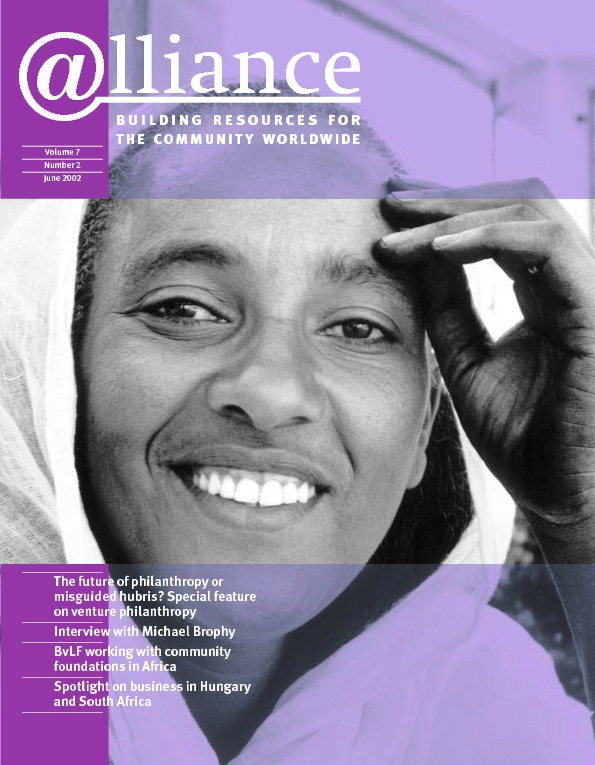The Mott Foundation has been supporting NESsT – the Nonprofit Enterprise and Self-sustainability Team, one of the pioneers of venture philanthropy in Central Europe[1] – since 1998. There are three key reasons for this.
Expanding NGOs’ resource base
Since the transition began in the late 1980s, Central European societies are in a permanent process of redefining the division of labour between the state, the newly emerging business sector and the non-profit sector. Citizens expect NGOs to deliver various services to social groups and to promote citizens’ interests directly outside the formalized ways of representative democracy. Although the overall income of the sector continues to rise, NGOs are still critically underfunded. It is unrealistic to expect that state support, citizen giving or traditional business giving will significantly increase in the near future. It is therefore imperative to involve previously untapped indigenous financial resources and to increase the capacity of NGOs to tap these resources. The various capacity-building tools offered by NESsT have already raised NGOs’ understanding of financial planning and the possibilities of generating income through their own activities.
Involving more people in the sector
Another result of the changes is the increasing polarization of Central European societies. The ‘winner’s’ natural solidarity with the ‘losers’ seems to have weakened in an age when being the master of one’s personal fortune is more possible than ever before. Engagement in the non-profit sector is one way of counteracting these tendencies. Non-profit activity is relatively new to Central Europe. Thus many people, especially those who are beneficiaries of the changes, have not found their way to participate in NGO/citizen activity. NESsT, through its boards, committees and capacity-building services to NGOs, has involved a great number of people who had not been engaged in the sector before.
Providing a platform for discussion
Building on a long history dating back to the thirteenth century, philanthropy in Central Europe has advanced a great deal since 1989. But practitioners still need to respond to a number of tough challenges in order to raise the effectiveness and credibility of philanthropy. One such challenge is creating relationships between donors and grantees that lead to a true exchange of experiences and understanding of social phenomena.
This is part of a process of strengthening solidarity between different groups and creating a more equal society, and it involves thinking of philanthropy as more than a simple act of giving money away. In practice, it means discussions around providing core support, establishing long-term relationships, meaningful but appropriate donor involvement in grantees’ work, and funding unpopular but important causes. Cooperation between the people and institutions practising different forms of philanthropy is vital in finding answers to these questions. NESsT’s work in providing a platform for discussion, such as the Venture Philanthropy Forum in 2001, has been crucial here.
1 For the purposes of this article, I will refer to the Czech Republic, Hungary, Poland and Slovakia as Central Europe.
Tamás Scsaurszki is based at the C S Mott Foundation’s Prague office. He can be contacted at tamas.scsaurszki@ecn.cz
Research project looks at venture philanthropy support for advocacy
A new research project seeks to identify the amount of Venture Philanthropy (VP) grantmaking that supports advocacy and social justice work; the major factors determining the level of VP support for such work; and if and how different levels of advocacy affect the outcomes of VP-funded projects. The aim is to help venture philanthropists and other funders improve the effectiveness of their grantmaking.
The analysis will rely on in-depth interviews with and surveys of VP funders, grant recipients, other funders, and advocacy proponents and experts, plus a review of grant publications and related documents. The research will be carried out by the US-based Community Resource and Research Center and funded by the Ford Foundation and Rockefeller Brothers Fund.
For more information contact Bristow Hardin at CRRC at crrc@earthlink.net





Comments (0)